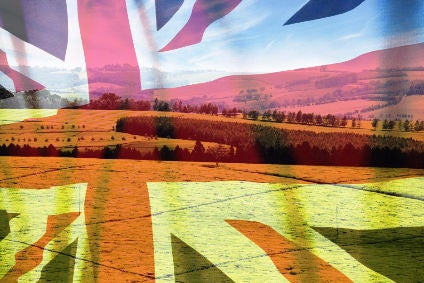There have been plenty of occasions since the early hours of 24 June 2016 when those in the UK who voted for the country to stay in the EU would have held their heads in the hands.
Brexit Secretary David Davis, sitting down with his EU counterparts without any notes. Fellow Government minister (and former UK Food Secretary no less) Andrea Leadsom calling on the media to be more patriotic. Foreign Secretary Boris Johnson’s insistence the EU can “go whistle” over its demands the UK pay a so-called divorce bill to leave the bloc.
And the concerns of worried Remainers would only have intensified this week at the leak of proposals from the UK government on immigration post-Brexit.
The document, leaked to The Guardian newspaper suggests the UK is looking at ending the free movement of labour with the EU as soon as it leaves the bloc and outlines measures to reduce the number of low-skilled workers coming from the market.
Unsurprisingly, there was consternation at the idea from the UK food and farming industries, which count workers from the EU as significant parts of their combined workforce.
Ian Wright, the director general of the UK’s Food and Drink Federation, said its members would be “alarmed” at the proposals.

US Tariffs are shifting - will you react or anticipate?
Don’t let policy changes catch you off guard. Stay proactive with real-time data and expert analysis.
By GlobalDataAs well as “alarming” industry, the proposals will no doubt be cheered by the Brexiteers in the Conservative Party, running, as it does, a minority government with informal support from Northern Ireland’s Democratic Unionist Party.
It is important to remember the proposals, drawn up by the UK’s Home Office, are not official government policy. However, let’s hope they do not become part of the UK’s post-Brexit plans.
UK food manufacturing and farming needs an immigration policy that reflects its requirements. The sectors depend on workers from the EU and have already seen staff leave since the vote, which has caused sterling to slide.
Should the Home Office paper somehow find its way to becoming official UK immigration policy, from where does the Government think it will source workers to man production lines or pick strawberries? Unemployment in the UK is at a 40-year low; there isn’t the ready seam of British workers to lean on. And, let’s not forget, manufacturing and farming are hardly seen as attractive industries by the indigenous workforce.
A more flexible answer is needed. “A solution, such as a suite of visa or permit schemes, is urgently needed to avoid losing a critical number of workers that could jeopardise future harvests and food production,” Meurig Raymond, the president of the UK’s National Farmers Union, said this summer.
Let’s be clear. The UK government has not been met with opprobrium from the country’s food industry each time it has made an announcement this year on its post-Brexit plans. The FDF, for example, welcomed the UK’s ambition to ensure there is “no hard border in the movement of goods” between the country and Ireland (even if the idea has been met with criticism from Brussels).
However, on immigration policy, common sense needs to prevail. It almost beggars belief that it could be a Conservative government which lets hard Brexit ideology override the needs of one of the most important parts of the UK economy.





